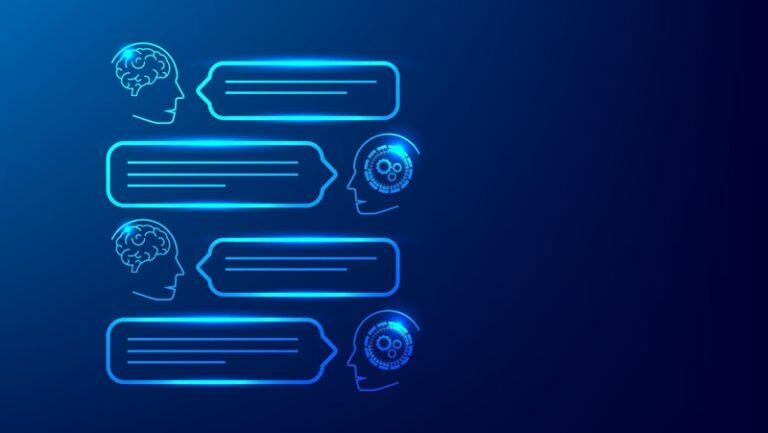“`html
AI Chatbots in Business: Benefits and Challenges
In today’s digital age, AI chatbots have become a crucial tool for businesses aiming to enhance customer interactions and streamline operations. These intelligent systems can engage with customers 24/7, providing instant support and information. However, like any technology, they come with their own set of benefits and challenges. In this article, we will explore the multifaceted impact of AI chatbots on business, highlighting their advantages, potential drawbacks, and providing practical insights for implementation.
Understanding AI Chatbots
AI chatbots are software applications powered by artificial intelligence, designed to simulate human conversation. They can be integrated into various platforms, including websites, messaging apps, and social media, making them easily accessible for users. Their primary functions typically include answering FAQs, assisting with transactions, and providing real-time support.
Benefits of AI Chatbots in Business
Implementing AI chatbots in your business can lead to numerous advantages:
1. Enhanced Customer Service
- 24/7 Availability: Chatbots provide uninterrupted service, answering queries at any time.
- Instant Responses: Customers receive immediate assistance, reducing frustration during peak hours.
- Consistent Support: Chatbots deliver uniform responses, ensuring brand messaging is consistent.
2. Cost Efficiency
Businesses can save significantly on operational costs by utilizing chatbots.
- Reduced Labor Costs: By handling routine inquiries, chatbots allow human agents to focus on complex issues.
- Lower Training Expenses: Training costs are minimized as chatbots require less maintenance and oversight.
3. Increased Engagement
- Personalized Interactions: AI chatbots can analyze user data to customize responses, providing a tailored experience.
- Proactive Customer Outreach: Chatbots can initiate conversations, incentivizing customers to engage more with your brand.
4. Data Collection and Insights
AI chatbots help in gathering valuable customer data, which can be analyzed for better decision-making:
- User Behavior Analysis: Understand customer preferences and pain points through interaction history.
- Market Trends: Use analytics to identify emerging trends and adjust business strategies accordingly.
Challenges of AI Chatbots in Business
Despite their advantages, AI chatbots also face potential pitfalls that businesses should consider:
1. Limited Understanding
- Contextual Awareness: Chatbots may struggle to understand nuanced queries or complex language.
- Miscommunication Risks: Poorly designed bots can lead to misunderstandings and customer frustration.
2. Dependence on Technology
Over-reliance on chatbots can be detrimental:
- Human Oversight Required: Chatbots cannot entirely replace human agents, particularly for delicate issues.
- Technical Malfunctions: System outages can leave customers without support, damaging brand credibility.
3. User Acceptance Issues
Some customers may prefer human interaction over automated responses:
- Trust Issues: New customers might be hesitant to interact with a chatbot.
- Anxiety Over Data Security: Concerns over privacy may discourage users from engaging with AI-driven platforms.
Practical Tips for Implementing AI Chatbots
Here are some practical tips businesses should consider when integrating AI chatbots:
- Define Clear Goals: Understand what you want to achieve with the chatbots, be it customer service, lead generation, or sales support.
- Choose the Right Platform: Consider integrating chatbots where your customers are most active (e.g., social media, website).
- Regularly Update Content: Ensure that the chatbot’s knowledge base reflects the latest information and trends.
- Keep Human Support Available: Always provide an option for customers to reach human agents when necessary.
Case Studies: Successful AI Chatbot Implementations
Several companies have successfully leveraged AI chatbots to enhance their operations. Here are a few notable examples:
| Company | Chatbot Name | Use Case | Results |
|---|---|---|---|
| Sephora | Sephora Virtual Artist | Product Recommendations | Increased product engagement and sales. |
| H&M | H&M Chatbot | Store Assistance | Enhanced customer experience and higher satisfaction rates. |
| Lyft | Lyft’s Chatbot | Ride Scheduling | Streamlined booking process, increasing ride requests. |
First-Hand Experience with AI Chatbots
Businesses that embrace AI chatbots often report a transformative impact on communication efficiency. For instance, a local retail store integrated an AI chatbot on their website to handle frequently asked questions about order status and product availability. As a result, they saw:
- 30% reduction in customer service inquiries to human agents.
- Increased customer satisfaction due to faster response times.
Conclusion
AI chatbots represent a remarkable advancement in the way businesses interact with customers. While they provide undeniable benefits such as enhanced customer service, cost efficiency, and valuable data insights, organizations must remain vigilant regarding the challenges associated with their implementation. By crafting a balanced approach that incorporates human oversight and carefully planning the integration process, businesses can reap the rewards of AI chatbots, propelling them into a future where exceptional customer experience is the standard.
“`

